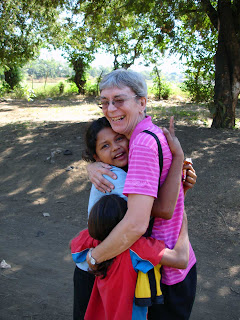We are gearing up for Friday evening’s light-hearted, Latin-flavor concert to provide funding for Christian Arts Camps for Nicaraguan children.
· Kathie Hoksbergen is creating a Nicaraguan-style staging and foyer displays. De Jong Greenhouse is providing baskets for the tropical plants.
· Daybreak Bible Study from Faith Church has offered to serve coffee and goodies following the concert. Of course, we accepted!
· A short video about last year’s arts camps has arrived from the Nehemiah Center in Nicaragua. I think Pella will be its very first showing.
· The list of performers, who range in age from 9 to 60+, includes:
o Brian Nolder - piano
o Brian Kolb - percussion
o Chelsea Pierce - piano
o Derek Fox - guitar
o Isaac Dorenkamp – piano (a fourth grader!)
o Jason Pentico - trumpet
o Kathryn Haug -vocals, conducting
o Marlo Van Klompenburg - organ
o Peter Bailey - violin
o Rachel Cowman - piano
o Steve McCombs - bass
o Steve Norris - percussion
o . . . and Joyful Noise Children’s Choir
Our goal is to raise $3,000 so 100 Nicaraguan children can attend a week of Christian Arts Camps. We are a little scared (will people come?)—and a lot excited.
Details: 7 p.m., Friday July 23, Faith Church, 215 University, Pella (across the street from Pella Community High School)
We invite you to join us—and to tell others about it too!











